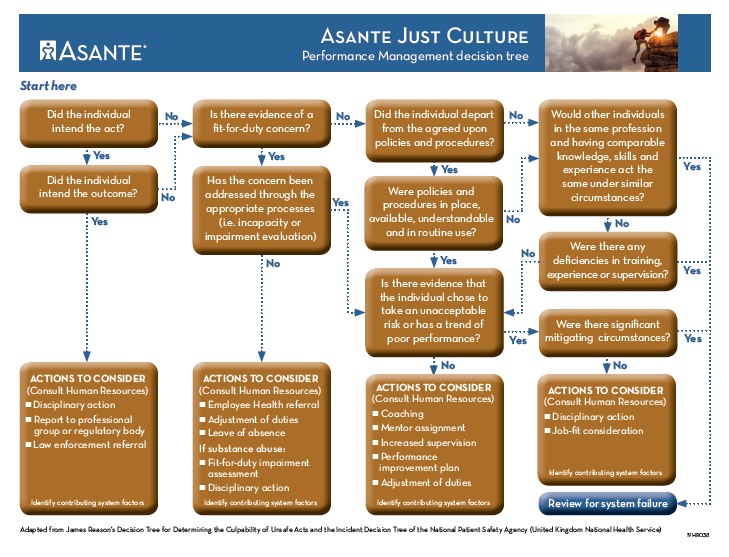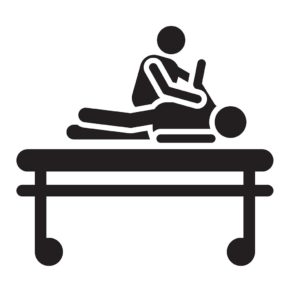Share:
Building a just culture
The concept of just culture is relatively new in health care. In 1999, the Institute of Medicine released a report called “To Err is Human,” which noted that up to 98,000 hospitalized patients in the United States die every year due to preventable medical errors. The report found that even competent professionals make mistakes that can harm patients, and it highlighted the importance of designing resilient systems to help mitigate human error. The report led to various initiatives to focus on improving the culture of patient safety in health care organizations throughout the country.
Traditionally, health care’s culture has held individuals accountable for all errors or mishaps that befall patients under their care. A “just culture” recognizes that individual practitioners should not be held accountable for system failings over which they have no control. In contrast to a “no-blame culture,” however, a just culture does not tolerate conscious disregard of clear risks to patients or gross misconduct such as falsifying a record or working while intoxicated.
Instead, a just culture is based on shared accountability. Organizations are accountable for the systems they design and for how they respond to staff behaviors fairly and justly. In turn, employees are accountable for the quality of their choices and for reporting all patient and staff safety concerns, including errors, near misses and system vulnerabilities.
 A just culture:
A just culture:
- Creates an open, fair and just environment
- Promotes a culture of reporting and learning from incidents, rather than blaming
- Implements safe systems and facilitates safe behavioral choices
- Ensures incident investigations are fair and free from bias, despite the outcome of the incident
- Standardizes leader response to errors across the organization
Consider the following example of a just culture at Asante. At one of our APP locations, a medical assistant had an order to give an intramuscular injection to a patient. The MA inadvertently administered the wrong medication to the patient, who had a known allergy to the medication. The event was thoroughly reviewed, looking at the human behavior elements in addition to the process of administering medications in our medical office locations. This event highlighted the need for ongoing employee and clinic education, and it identified an opportunity to improve the medication administration process in the outpatient setting. This event, in addition to other similar events, led to the implementation of bar code medication administration in all APP clinics.
A fair and just culture improves patient and staff safety by empowering employees to proactively monitor the workplace and participate in safety efforts in the work environment. Acknowledging that even experienced professionals make mistakes can lead to an open and safe reporting system where everyone can speak up without fear of reprisal. This can lead to shared learning from errors and an eventual culture shift that helps prevent future errors. This is a just culture.
People make errors, which lead to accidents. Accidents lead to deaths. The problem is seldom the fault of the individual; it is the fault of the system. Change the people without changing the system and the problem will continue.”
— Don Norman, “The Design of Everyday Things”
If you have a question, please contact the author or relevant department directly.





1 Comment. Leave new
This is important work and a positive cultural shift. Let me challenge this by asking for a broadening of the concept. A just system can not simply be created by changing the philosophy around investigation and action. A just system should recognize the strains on the individuals and constraints of the system that lead to mental fatigue, prioritization of action over thinking, and the value given to time efficiency over safety. We are heading in the right direction by having a truly open and safe dialogue about events; let’s apply the same philosophy to discussions about the systems and processes in place. Thank you for making a positive change.